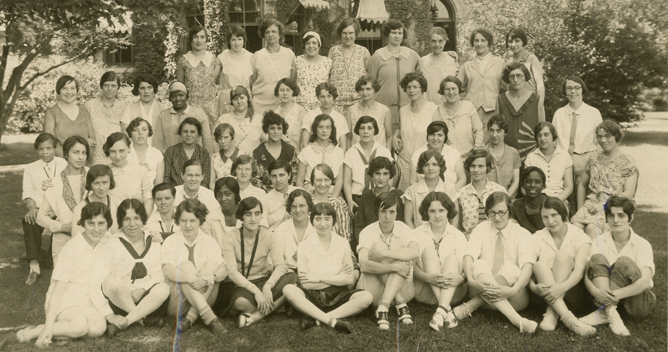Teaching Women’s History Online: Feminist Challenges and Opportunities
Speaker Bio
Lisa Levenstein is Associate Professor of History at the University of North Carolina at Greensboro. She is the author of A Movement Without Marches: African American Women and the Politics of Poverty in Postwar Philadelphia (UNC Press, 2009), which was the co-winner of the Kenneth Jackson Book Award from the Urban History Association and received an Honorable Mention for the Frederick Jackson Turner Award from the OAH. Most recently, Levenstein co-authored "The Big Tent of U.S. Women's History: A State of the Field," for the Journal of American History (December 2012). At UNC Greensboro, she teaches a range of courses about women's history, most of them focusing on the twentieth century United States.
Abstract
Is feminist pedagogy compatible with online teaching? This is a question I have asked myself repeatedly as I have taught a new online course at the University of North Carolina at Greensboro: Women in World History. At first glance, online education seems fundamentally incompatible with key components of feminist pedagogy, particularly the emphasis on personal interaction and community building. Other disincentives to feminist online teaching include assumptions about the lack of rigor of online courses, fears of surveillance, and a general distaste for online education because of its connection to the increased corporatization of the university. This paper will explore both the benefits and drawbacks of teaching women's history online, probing why feminist scholars who have embraced many other aspects of the digital revolution seem reluctant to commit to online teaching and exploring what is gained and lost in teaching women's history on the internet. I will highlight some of the unexpected benefits of teaching online, including the diversity of the students who take these classes (many of whom have never taken a course that analyzes gender), requirements that all students actively participate in all online discussions, and the student-centered nature of the class conversations. I will also discuss the implications of teaching about diversity and identity in an online environment and the new questions it poses about self-identification.
Teaching Women’s History Online: Feminist Challenges and Opportunities
Is feminist pedagogy compatible with online teaching? This is a question I have asked myself repeatedly as I have taught a new online course at the University of North Carolina at Greensboro: Women in World History. At first glance, online education seems fundamentally incompatible with key components of feminist pedagogy, particularly the emphasis on personal interaction and community building. Other disincentives to feminist online teaching include assumptions about the lack of rigor of online courses, fears of surveillance, and a general distaste for online education because of its connection to the increased corporatization of the university. This paper will explore both the benefits and drawbacks of teaching women's history online, probing why feminist scholars who have embraced many other aspects of the digital revolution seem reluctant to commit to online teaching and exploring what is gained and lost in teaching women's history on the internet. I will highlight some of the unexpected benefits of teaching online, including the diversity of the students who take these classes (many of whom have never taken a course that analyzes gender), requirements that all students actively participate in all online discussions, and the student-centered nature of the class conversations. I will also discuss the implications of teaching about diversity and identity in an online environment and the new questions it poses about self-identification.
